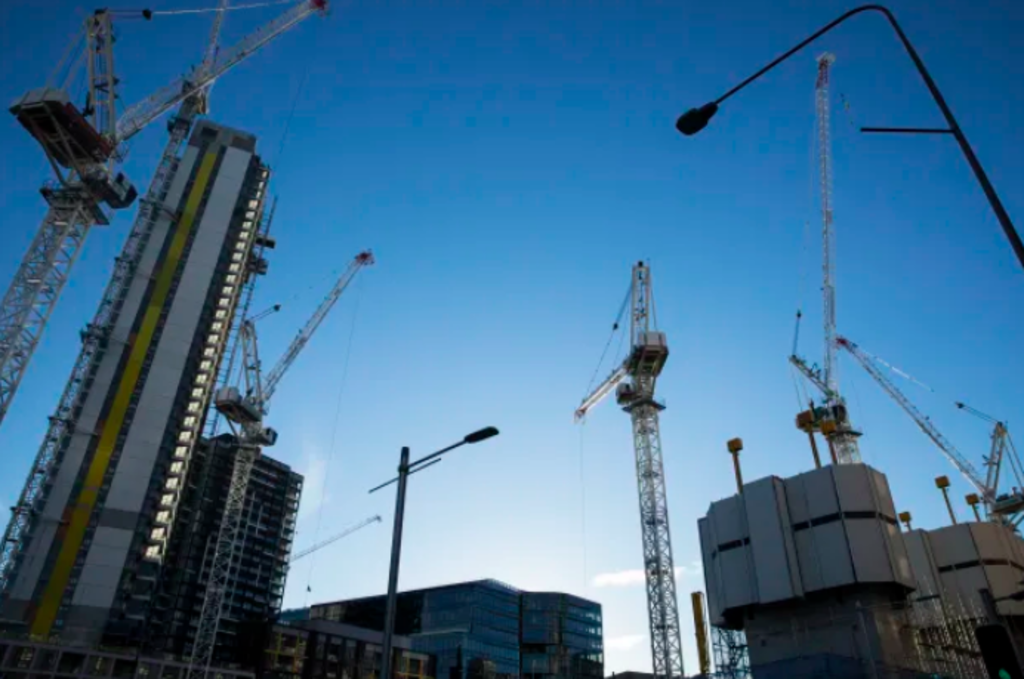Coronavirus causing delays to renovations and home builds across Australia
The building industry is now being impacted by coronavirus with dire shortages of materials and products traditionally imported from China slowing construction and renovation work around the country.
“We don’t want to be alarmist, but we are finding that contractors are starting to experience a lack of supply of materials like paint, glass and building cladding which are all manufactured in China,” said Master Builders Association executive director Brian Seidler.
“The factories that make these products all closed down for the Chinese New Year celebrations and then coronavirus hit, and so they extended their closing down period. And now no one knows when they’ll start up again.”
On the ground, tradies are bearing the brunt of the problems of scarcities of everything from simple screws and nails all the way up to roofing materials.
Matt Jones of tradie education organisation Tradiematepro said he’s having conversations all the time now with workers across the building and construction trades reporting shortages.

“There’s a ripple effect all over the industry, from the west coast to the east,” he said. “Everyone’s now dealing with shortages which means there’s a real backlog of work everywhere which is getting worse every day.
“I think now we’re all realising that a lot of things we’d generally go to Bunnings for are all brought over from Asia.”
Limiting the potential damage to the industry as a whole, however, is the fact that some of the larger players were already drawing up contingency plans to deal with a possible trade war with China.
Many were already investigating alternative sources for building materials, said Tim Reardon, Housing Industry of Australia chief economist.
“We were looking at potential supply chain constraints but didn’t anticipate them to come from something like this,” said Mr Reardon.
“But still, it means that larger companies were already looking at multi-city sourcing so the challenge is now to increase the scale of that production and the availability of those sources.
“At this stage, the impact is still relatively minor, but the impact of coronavirus on the wider economy is more important in terms of lower household expenditure.”

At the Urban Developer Institute of Australia (UDIA), the situation is being carefully monitored, especially with the sector accounting for about 7.5 per cent of the nation’s economic growth so it is a big part of the engine that needs to keep running.
“There are risks that supply chain constraints on key products will feed into project delays,” said Connie Kirk, UDIA national executive director. “It’s already being witnessed on products like window frames, and industry will need to be vigilant on looming shortages as supply chains remain disrupted.
“We’ve already got an imbalance between re-emerging buyer demand and softening housing supply pipelines, so there is a need to watch how that affects pricing.”
Yet there still is the opportunity for the diversification of supply chains by reaching into established European and emerging Asian economies to ensure the risk profile going forward is lowered.
“It will take time to tap alternative markets but there is a good case for doing so to ensure industry has the flexibility to manoeuvre around both the problems today and the potential for a repeat in the future,” said Ms Kirk.

That might also be a glimpse of a silver lining for Australian manufacturing, too, said Dan Reilly, founder of interior design and construction company Red Door Project, who appeared on TV show The Block for two years running.
“In the long term, it could be a good thing for Australia, with people choosing locally made materials over those made overseas,” he said.
“Prices could potentially go up, we don’t know, but I think if they go for Australian-made which will generally be better quality as well, that will be better for the end client, too.”
In the short-term, there will definitely be pain, though, as the market continues trying to adjust.
“A lot of tradies report being three weeks behind with orders at the moment, and that’s only going to get worse,” said Mr Jones.
And no one, naturally, knows how long this situation will continue. “This kind of situation is just unprecedented,” Mr Seidler said.
“Insurers will often cover delays as a result of a force majeure, but while it’s short term, the short term could continue for a long time.”
Hardware stores have been sourcing locally or ordering ahead to minimise the effect on customers.
While masks are in short supply, Bunnings reported it had seen little other impact on its supply chain.
“But we are monitoring the situation closely as things develop,” said managing director Mike Schneider.
“For our building customers, in many cases we have the ability to source locally and aggregate orders through stock in our store network and we continue to work with our major builder and trade customers to ensure minimal impacts to their current or future projects.”
Multiple Mitre 10 stores, contacted by Domain, also reported little impact on supplies except for masks, toilet paper and hand sanitiser.
It was a similar story at Blacktown Building Supplies in Sydney, with builders unable to get their P2 masks or toilet paper for job sites.
Manger Robert Sharp expected there could be further shortages to come. However he noted most suppliers had several months worth of stock and the store had already ordered up on some popular products made in China — such as plywood and decking — to prepare.
He’s even decided to order in some bidets, a product he doesn’t normally stock.
“We were told there were in short supply,” he added laughing. “Whether I sell them or not is another thing.”
With Kate Burke
We thought you might like
States
Capital Cities
Capital Cities - Rentals
Popular Areas
Allhomes
More







